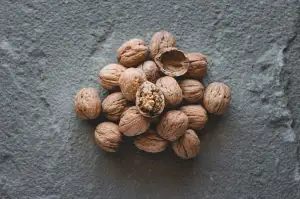Wholesome and Delicious: Discover the Secret to Healthy Hotdog Buns

Hotdogs are a beloved classic, but the often overlooked hero of this iconic dish is the bun. While traditional hotdog buns may be tasty, they often lack nutritional value and can contribute to an unhealthy diet. That's why it's time to discover the secret to healthier hotdog buns that are both wholesome and delicious. By making simple swaps and choosing healthier alternatives, you can elevate your hotdog experience to a whole new level. In this article, we will explore different options for healthy hotdog buns that cater to various dietary needs, ensuring that everyone can enjoy guilt-free indulgence without compromising on taste or nutrition. So let's dive in and uncover the secrets behind these nutritious and delectable buns!
Importance of choosing healthier alternatives
Choosing healthier alternatives for our food is becoming increasingly important in today's society. With the rise of chronic diseases such as obesity, diabetes, and heart disease, it is crucial to make conscious decisions about what we put into our bodies.
When it comes to hotdog buns, opting for healthier alternatives can have a significant impact on our overall health. Traditional white bread buns are often made with refined flour, which lacks essential nutrients and fiber. These buns are also typically high in sugar and unhealthy fats.
By choosing healthier alternatives, such as whole wheat hotdog buns, we can ensure that we are getting more nutrients and fiber in our diet. Whole wheat flour is made from the entire grain, including the bran and germ, which contain valuable vitamins, minerals, and antioxidants. This makes whole wheat hotdog buns a much more nutritious option compared to their refined counterparts.
Additionally, for individuals with gluten sensitivities or celiac disease, gluten-free hotdog buns are a necessity. These buns are made from alternative flours like rice flour or almond flour and do not contain any gluten proteins. By choosing gluten-free options, individuals can enjoy hotdogs without experiencing digestive discomfort or other adverse reactions.
For those following a low-carb diet or looking to manage their blood sugar levels, low-carb hotdog buns offer a suitable alternative. These buns are typically made with ingredients like almond flour or coconut flour instead of traditional wheat flour. They have significantly fewer carbohydrates than regular buns while still providing a satisfying texture and taste.
Lastly, vegan hotdog buns cater to those following a plant-based lifestyle or dietary restrictions. Made without any animal products like eggs or dairy, these buns offer a delicious option for everyone to enjoy guilt-free hotdogs.
In conclusion, choosing healthier alternatives when it comes to hotdog buns is essential for maintaining a balanced diet and promoting overall well-being. Whether it's opting for whole wheat, gluten-free, low-carb, or vegan options, these alternatives provide nutritious and delicious choices that can be enjoyed without any guilt. So next time you're craving a hotdog, consider making the switch to healthier buns and savor the taste of wholesome goodness.
Whole wheat hotdog buns: A nutritious option
Whole wheat hotdog buns are a nutritious alternative to traditional white buns. Made from whole grains, they retain the bran and germ, which are rich in fiber, vitamins, and minerals. This means that whole wheat buns provide more nutrients and have a lower glycemic index compared to their refined counterparts. The high fiber content helps regulate blood sugar levels and promotes digestive health. Additionally, whole wheat buns contain complex carbohydrates that provide sustained energy and keep you feeling full for longer. By choosing whole wheat hotdog buns, you can enjoy your favorite comfort food while nourishing your body with wholesome ingredients.
Gluten-free hotdog buns: Catering to dietary restrictions
Gluten-free hotdog buns are a great option for those with gluten sensitivities or celiac disease. Gluten is a protein found in wheat, barley, and rye, which can cause digestive issues and inflammation in some individuals. By opting for gluten-free hotdog buns, you can cater to these dietary restrictions and still enjoy a delicious hotdog.
There are several gluten-free alternatives available that make for excellent hotdog buns. One popular choice is using rice flour or a combination of rice flour and tapioca flour. These flours provide a light and fluffy texture, similar to traditional wheat-based buns.
Another option is using almond flour or coconut flour. These flours are not only gluten-free but also add a nutty flavor and extra nutrients to the buns. They are high in protein, healthy fats, and fiber, making them a nutritious choice.
When making gluten-free hotdog buns at home, it's important to use gluten-free ingredients for all components of the bun, including yeast if used. Cross-contamination can occur if utensils or surfaces that have come into contact with gluten-containing ingredients are used.
By offering gluten-free hotdog buns as an alternative, you can ensure that individuals with dietary restrictions can still enjoy this classic comfort food without compromising their health. So next time you're hosting a barbecue or craving a hotdog at home, consider serving up some delicious gluten-free hotdog buns alongside your favorite toppings!
Low-carb hotdog buns: Suitable for a balanced diet
For those watching their carbohydrate intake, low-carb hotdog buns offer a perfect solution. Traditional white bread buns are high in refined carbohydrates, which can lead to spikes in blood sugar levels and contribute to weight gain.
Low-carb buns are made with alternative flours such as almond or coconut flour, which have significantly fewer carbs compared to wheat flour. These buns typically contain around 4-6 grams of net carbs per serving, making them an excellent choice for individuals following a low-carb or ketogenic diet.
In addition to being lower in carbs, these buns are often higher in fiber and healthy fats. Fiber aids digestion and helps keep you feeling fuller for longer, while healthy fats provide essential nutrients and promote satiety.
By opting for low-carb hotdog buns, you can enjoy your favorite grilled sausages without compromising your dietary goals. Whether you're aiming to lose weight or maintain a balanced diet, these buns allow you to indulge in a classic comfort food while keeping your carb intake in check.
Remember, moderation is key even when choosing low-carb options. Pairing your hotdog with fresh vegetables or a side salad will further enhance the nutritional value of your meal. So go ahead and savor the deliciousness of a guilt-free hotdog with low-carb buns!
Vegan hotdog buns: Plant-based goodness for everyone
Vegan hotdog buns are a great option for those following a plant-based diet or looking to reduce their consumption of animal products. These buns are made without any animal-derived ingredients, making them suitable for vegans and vegetarians.
One of the main benefits of vegan hotdog buns is that they are cholesterol-free. Animal products such as eggs and butter, which are commonly used in traditional hotdog buns, can be high in cholesterol and unhealthy fats. By opting for vegan alternatives, you can enjoy your hotdogs without worrying about these health concerns.
Furthermore, vegan hotdog buns are often made with whole wheat flour or other nutritious grains. This means they contain more fiber and essential nutrients compared to their refined flour counterparts. Fiber aids digestion and helps maintain a healthy weight, while nutrients like iron and B vitamins support overall well-being.
Another advantage of vegan hotdog buns is that they can cater to various dietary restrictions and allergies. They do not contain common allergens like dairy or eggs, making them a safe choice for individuals with food sensitivities or intolerances.
In addition to being healthier and allergy-friendly, vegan hotdog buns also contribute to environmental sustainability. Animal agriculture has a significant impact on greenhouse gas emissions and deforestation. By choosing plant-based options, you can help reduce your carbon footprint and promote a more sustainable food system.
To make homemade vegan hotdog buns, you can use alternative ingredients like plant-based milk (such as almond or soy milk), vegetable oil instead of butter, and flaxseeds mixed with water as an egg substitute. These simple swaps will ensure that your buns are entirely free from animal products while still maintaining their softness and delicious taste.
In conclusion, vegan hotdog buns offer a plant-based alternative that is not only good for your health but also aligns with ethical choices and environmental sustainability. Whether you follow a vegan lifestyle or simply want to incorporate more plant-based options into your diet, these buns provide a guilt-free and wholesome option for enjoying your favorite hotdogs.
Tips for making homemade healthy hotdog buns
1. Use whole wheat flour: Replace refined white flour with whole wheat flour to increase the fiber content and add nutrients like B vitamins and iron.
2. Incorporate seeds: Add a variety of seeds such as flaxseeds, sesame seeds, or chia seeds to the dough for extra texture and nutritional benefits. These seeds are rich in omega-3 fatty acids and antioxidants.
3. Reduce sugar: Cut back on the amount of sugar used in the recipe or opt for natural sweeteners like honey or maple syrup instead. Excess sugar can contribute to health issues like obesity and diabetes.
4. Experiment with alternative flours: If you're gluten intolerant or simply want to try something different, consider using alternative flours like almond flour or coconut flour. These options are higher in protein and lower in carbohydrates.
5. Avoid artificial additives: Steer clear of preservatives, artificial colors, and flavors commonly found in store-bought buns. Homemade buns allow you to control the ingredients and ensure a healthier final product.
6. Opt for healthier fats: Substitute butter or margarine with healthier fats such as olive oil or avocado oil when making your dough. These fats contain monounsaturated fats that are beneficial for heart health.
7. Portion control: Keep portion sizes in mind while shaping your buns. Smaller-sized buns can help control calorie intake without sacrificing taste.
8. Bake instead of frying: Instead of frying your hotdog buns, bake them in the oven for a healthier alternative that reduces unnecessary fat consumption.
By following these tips, you can create homemade hotdog buns that are not only delicious but also wholesome and nourishing for you and your family to enjoy guilt-free!
In conclusion, choosing healthier alternatives for hotdog buns is a simple yet effective way to make your meals more wholesome and delicious. By opting for whole wheat hotdog buns, you can enjoy the nutritional benefits of fiber, vitamins, and minerals. For those with gluten sensitivities or allergies, gluten-free hotdog buns provide a safe and tasty option. Low-carb hotdog buns are perfect for individuals looking to maintain a balanced diet while still indulging in their favorite comfort food. And for those following a vegan lifestyle, plant-based hotdog buns offer a cruelty-free alternative without sacrificing taste.
By making your own homemade healthy hotdog buns, you have full control over the ingredients used and can customize them to suit your dietary needs and preferences. Whether you prefer whole wheat flour, gluten-free flours like almond or rice flour, or low-carb options such as coconut flour or cauliflower, there are endless possibilities to explore.
So next time you're craving a delicious hotdog, don't let guilt overshadow your enjoyment. With these healthier bun options at your disposal, you can savor every bite knowing that you're nourishing your body with nutritious ingredients. Embrace the secret to healthy hotdog buns and elevate your dining experience at home!
Published: 17. 02. 2024
Category: Health



